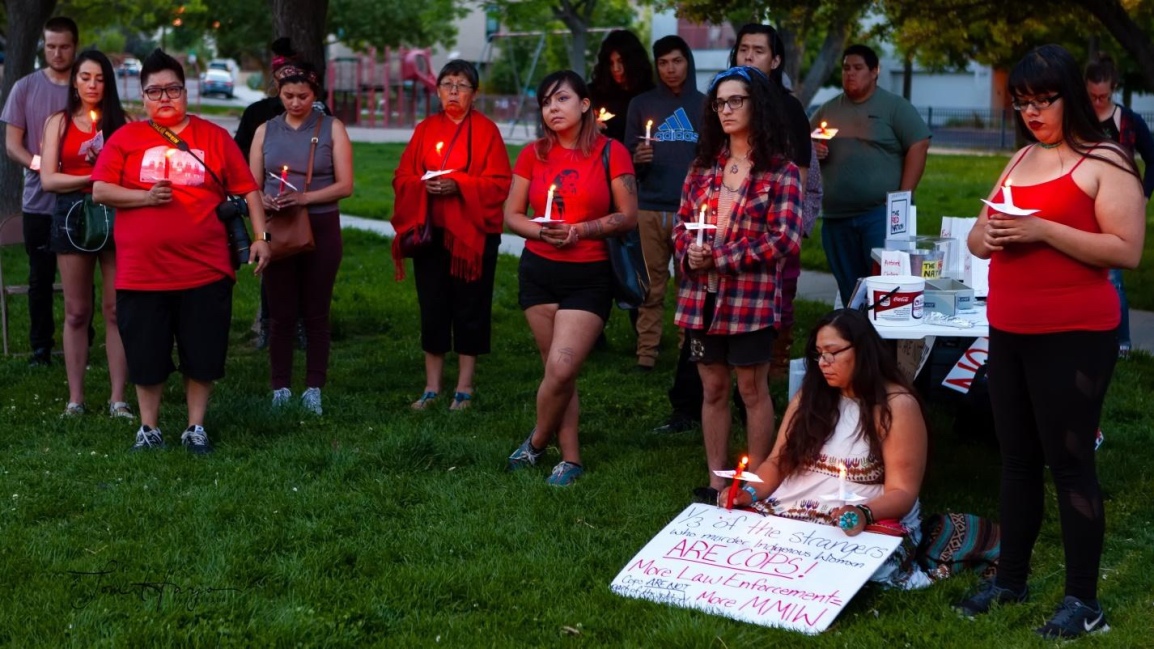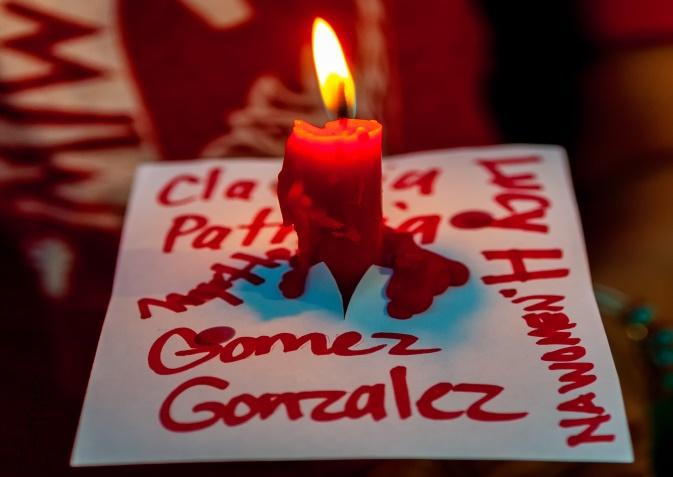Missing and Murdered Indigenous Women Rally and Candlelight Vigil

by Kiley Guy
On May 5, The Red Nation held a rally and candlelight vigil for Missing and Murdered Indigenous Women, Girls, Trans and Two-Spirit relatives (MMIWG2S) at Morningside Park in Albuquerque, New Mexico. Approximately 50 gathered to remember and honor those lost and stolen, a response to the state of emergency according to data revealing Indigenous women as a population suffering the highest rates of those missing and murdered in the United States. Speakers included Justine Teba, Keioshiah Peter, Mattee Jim, Sierra John, Hope Alvarado, and Jennifer Marley—all of whom brought attention to the high rates of interpersonal and systemic violence as a result of hetero-patriarchy, law enforcement, transphobia, resource extraction, and capitalism. Mattee Jim reflected on the violence aimed at transwomen for simply being who they are, adding that the average life expectancy of trans relatives is 35 years old. In addition, transwomen victims are misgendered, depicted as criminals, and stereotyped in media coverage. This causes additional harm by normalizing the violence inflicted upon them by heteropatriarchy.
Another aspect discussed was the necessity to start thinking about MMIWGT2S in a global context. For instance, migrating women and children are brutally detained and assaulted in the custody of United States Immigration and Customs Enforcement (ICE). Under Zionist occupation, Palestinian women and children are forcibly detained and subjected to torture. By expanding the frame of MMIWGT2S beyond the United States, we can see that these cases are not isolated or exceptional but part of a larger structure of violence. Jennifer Marley stated, “Violence transcends borders. If there is anything that doesn’t acknowledge borders it’s global settler colonialism.” MMIWGT2S is not spontaneous. It has been ongoing since 1492.
At the vigil, community members shared their own stories since thousands of cases go unreported, unnoticed, and ignored. A common frustration shared by community members was the erasure of a loved one’s death or disappearance. According to research and data collected by Urban Indian Health Institute, 5,712 of MMIW cases were reported in 2016. Only 116 were logged into the Department of Justice database. And while most of the focus is placed on external pressures outside Indigenous communities, there was an acknowledgement that violence is also perpetuated by Indigenous men.
To conclude the event, community members lit candles and luminaries with the names of murdered or disappeared loved ones. Followed by an MMIW honor song, a prayer was offered.

In settler society, MMIWGT2S are given only one day of recognition and a hashtag to follow. Their stories are exploited before they are brought justice. Politicians would rather fund ICE, the US military, and the police—who are all purveyors of violence against Indigenous women—rather than to acknowledge the root causes of MMIWGT2S. To speak their names would threaten their position of power and the profits reaped by the continued killing and disappearances. Loreal Tsinigine, Razan al-Najjar, Jakelin Caal Maquin, Roxsana Hernandez, Sandra Bland—remember them always. We carry their spirits in our hearts and to the frontline.




